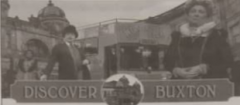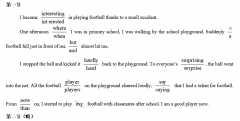湖南浏阳一中2016届第二次月考英语试题及答案(2)
22. You should pay ________ to change your room door lock combination.
A. $ 100. B. $ 80. C. $ 50. D. $ 25.
23. What do we know about the pet policy?
A. No pets are permitted in student rooms.
B. If you have a visiting pet, you won’t be fined.
C. Students won’t receive written notice when the fine goes into effect.
D. Students might be referred to the Student Court for keeping pets in their rooms.
24. When can students enjoy a party in residences?
A. 7:00 am, Tuesday. B. 11:00 pm, Friday.
C. 7:30 am, Saturday. D. 11:30 pm, Sunday.
B
Raised in a fatherless home, my father was extremely tightfisted towards us children. His attitude didn’t soften as I grew into adulthood and went to college. I had to ride the bus whenever I came home. Though the bus stopped about two miles from home, Dad never met me, even in severe weather. If I grumbled, he’d say in his loudest father-voice, “That’s what your legs are for!”
The walk didn’t bother me as much as the fear of walking alone along the highway and country roads. I also felt less than valued that my father didn’t seem concerned about my safety. But that feeling was canceled one spring evening.
It had been a particularly difficult week at college after long hours in labs. I longed for home. When the bus reached the stop, I stepped off and dragged my suitcase to begin the long journey home.
A row of hedge(树篱)edged the driveway that climbed the hill to our house. Once I had turned off the highway to start the last lap of my journey, I always had a sense of relief to see the hedge because it meant that I was almost home. On that particular evening, the hedge had just come into view when I saw something gray moving along the top of the hedge, moving toward the house. Upon closer observation, I realized it was the top of my father’s head. Then I knew, each time I’d come home, he had stood behind the hedge, watching, until he knew I had arrived safely. I swallowed hard against the tears. He did care, after all.
On later visits, that spot of gray became my watchtower. I could hardly wait until I was close enough to watch for its secret movement above the greenery. Upon reaching home, I would find my father sitting innocently in his chair. “So! My son, it’s you!” he’d say, his face lengthening into pretended surprise.
I replied, “Yes, Dad, it’s me. I’m home.”
25. What does the underlined word “grumbled” in Paragraph 1 probably mean?
A. Spoke unhappily B. Accepted happily.
C. Explained clearly. D. Agreed willingly.
26. According to the passage, ________.
A. The author thought nothing of walking home alone.
B. The author didn’t want to go home when he grew up.
C. The author was really surprised to see his father home.
D. The author was not walking alone each time he went home.
27. The author’s father watched behind the hedge because ________.
A. he was concerned about his son’s safety.
B. he wanted to help his son build up courage.
C. he didn’t want to meet his son at the doorway.
D. he didn’t think his son was old enough to walk alone.
28. Which of the following can be the best title for the text?
A. My College Life. B. My Father’s Secret.
C. Terrible Journey Home. D. Riding Bus Alone.
C
As Internet users become more dependent on the Internet to store information, are people remembering less? If you know your computer will save information, why store it in your own personal memory, your brain? Experts are wondering if the Internet is changing what we remember and how.
In a recent study, Professor Betsy Sparrow conducted some experiments. She and her research team wanted to know how the Internet is changing memory. In the first experiment, they gave people 40 unimportant facts to type into a computer. The first group of people understood that the computer would save the information. The second group understood that the computer would not save it. Later, the second group remembered the information better. People in the first group knew they could find the information again, so they did not try to remember it.
In another experiment, the researchers gave people facts to remember, and told them where to find the information on the Internet. The information was in a specific computer folder (文件夹). Surprisingly, people later remember the folder location (位置) better than the facts. When people use the Internet, they do not remember the information. Rather, they remember how to find it. This is called "transactive memory (交互记忆)"
According to Sparrow, we are not becoming people with poor memories as a result of the Internet. Instead, computer users are developing stronger transactive memories; that is, people are learning how to organize huge quantities of information so that they are able to access it at a later date. This doesn't mean we are becoming either more or less intelligent, but there is no doubt that the way we use memory is changing.
29. What can we learn about the first experiment?
A. Sparrow's team typed the information into a computer.
B. The first group didn’t know where the information is.
C. The second group had a better memory of the information.
D. The two groups remembered the information equally well.
30. In transactive memory, people ______.
A. bear huge quantities of information in mind.
B. learn how to organize small amounts of information.




